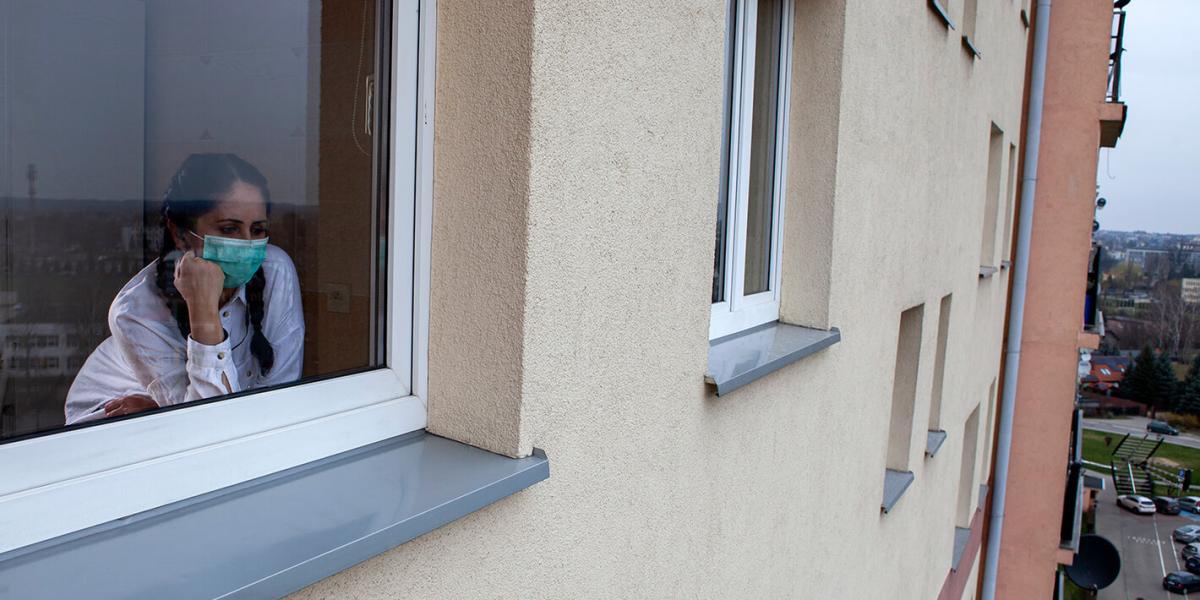PAHO/WHO: Countries must expand services to cope with mental health effects of COVID-19 pandemic
 Countries in the Americas should expand and invest in mental health services to cope with the effects of the COVID-19 pandemic, Pan American Health Organization Director Carissa F. Etienne said on August, 18. “The COVID-19 pandemic has caused a mental health crisis in our region at a scale we’ve never seen before. It’s a perfect storm in every country, as we see growing needs and reduced resources to address them. It is urgent that mental health support is considered a critical component of the pandemic response,” she said.
Countries in the Americas should expand and invest in mental health services to cope with the effects of the COVID-19 pandemic, Pan American Health Organization Director Carissa F. Etienne said on August, 18. “The COVID-19 pandemic has caused a mental health crisis in our region at a scale we’ve never seen before. It’s a perfect storm in every country, as we see growing needs and reduced resources to address them. It is urgent that mental health support is considered a critical component of the pandemic response,” she said.
“Mental health and domestic violence services are essential services, and we must place emphasis on addressing the gaps that have been laid bare by the pandemic. Today, I ask countries to take the steps required to ensure everyone can receive the care they need and deserve,” Etienne told a press briefing.
Dr Etienne noted that coronavirus cases in the Americas have reached almost 11.5 million and over 400,000 people have died. “The Americas have approximately 13% of the world’s population, but 64% of officially reported global deaths,” she said.
The pandemic is having a serious impact on health workers, who are working longer hours than ever before and risking their own lives as hospitals struggle to maintain sufficient Personal Protective Equipment. “After months of operating in crisis mode, our health professionals are facing burnout, anxiety and depression,” she said.
The most effective steps are to hire and train more health workers and integrate mental health and psychosocial support within primary health care systems so they’re easily accessible to those who need them most, she added.
“Everyone who needs mental health support should feel comfortable asking for help. No one should have to suffer alone and without professional support, especially now. Naturally, some of the same concepts apply to domestic violence. These services must be accessible and integrated at the local level; we need innovations to reach and support survivors, and it is paramount to fight stigma. Violence is never acceptable, and survivors of domestic violence should not be blamed.”
Carissa F. Etienne, PAHO/WHO Director
“The real extent of domestic violence during COVID-19 is likely under-estimated, as survivors are stuck at home and support and outreach services are interrupted. With reduced contact to friends and family or barriers in access to services and shelters, we’re leaving survivors with nowhere to go. The costs of violence are extraordinarily high, so support to survivors cannot be put on hold, Etienne said.
PAHO has been helping countries to strengthen policies and services and expand online learning for health workers so they know how to identify and support survivors of violence during the pandemic, she said, and some places using novel approaches to ensure survivors of violence can ask for help discreetly, such as through code words or hand signals.
Patients who have tested positive for COVID-19 also experience insomnia, delirium or even depression, Etienne said. Many persons are overwhelmed with fear of developing severe illness, others are understandably worried for their lives, Etienne noted. Initial research indicates that as much as a third of patients recovering from COVID-19 can have enduring changes in their mood and suffer from anxiety or depression.
Mental health illness is a silent epidemic that has affected the Americas well before COVID-19, with depression and anxiety listed as two of the leading causes of disability. The region also has the second-highest level of alcohol consumption in the world. Emergencies can worsen these conditions, she said.
During the pandemic, Etienne said, “Many of us have felt fearful of infection or anxiety if we are sick; grief as our loved ones have succumbed to the virus; uncertainty about the future, as jobs and life as we knew it came under threat; overwhelmed by the news and misinformation; and lonely or isolated after weeks or even months of social distancing. We are all suffering – especially those affected by pre -existing mental health conditions.” “We must step up so those living with mental health conditions as well as survivors of violence have the resources and support they need. This pandemic reminds us, like never before, that good mental health is necessary for the wellbeing of individuals and societies,” the PAHO director added.



